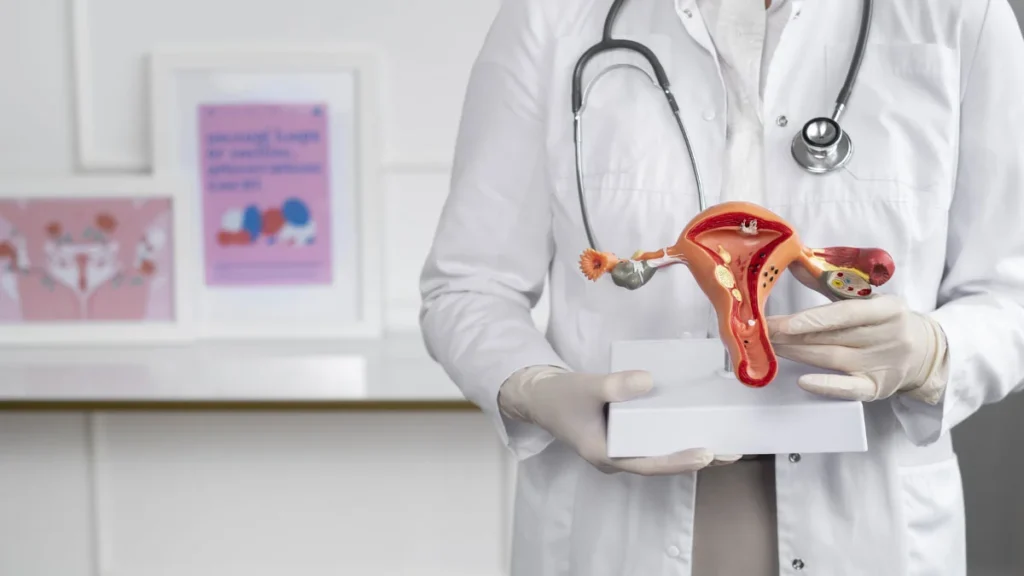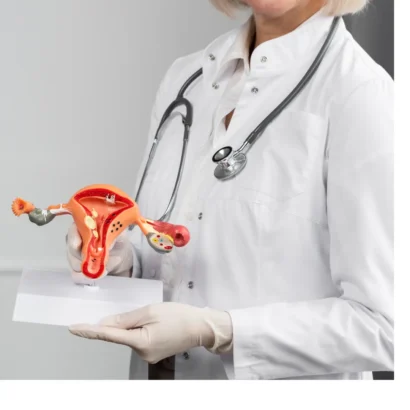
6 Signs You May Need to See a Gynaecologist
A gynaecologist plays a crucial role in the overall health of every woman — whether she is a young adult, post-menopausal, or at any stage in between. A gynaecologist is a medical doctor who specializes in the health of the female reproductive system and addresses various issues from puberty to menopause. They provide a range of services, including routine check-ups, Pap smears, pregnancy care, and treatment for issues such as menstrual disorders, infertility, and infections.
Table of Contents
ToggleWhat does a gynaecologist do?
A gynaecologist is a medical professional dedicated to the field of women’s reproductive health. They are specialists equipped to address and manage various concerns or conditions related to the female reproductive system, including:
- Vagina
- Uterus
- Breasts
- Ovaries
- Fallopian tubes
- Cervix

Signs You May Need to See a Gynaecologist
Irregular Menstrual Cycles:One of the primary indicators that you may need to see a gynaecologist is irregular menstrual cycles. While the length and flow of menstrual periods can vary from woman to woman, significant changes such as sudden irregularity, unusually heavy bleeding, or persistent spotting could signal an underlying issue. A Gynaecology specialist can help identify the cause and recommend appropriate treatments to regulate your menstrual cycle. Irregular periods may indicate an underlying issue, such as Polycystic Ovary Syndrome (PCOS), a hormonal imbalance disorder. Additionally, a missed period could signal pregnancy or another urgent medical condition that demands prompt attention.
Pelvic Pain or Discomfort: Experiencing persistent pelvic pain or discomfort should never be ignored. If it does not seem to go away, consulting a gynaecologist is advised. Persistent pelvic pain during your menstrual cycles, sexual intercourse, or during urination could indicate issues such as endometriosis, fibroids, or pelvic inflammatory disease (PID). Early detection and intervention can prevent the progression of certain conditions and alleviate discomfort.
Unusual Vaginal Discharge: Changes in vaginal discharge can be normal, especially during the menstrual cycle. However, if you observe unusual changes such as a foul odour, unusual colour, or consistency, it could indicate some type of infection or other gynaecological issue. A gynaecologist can conduct tests to determine the cause and prescribe appropriate treatments.
Painful Intercourse:Pain during intercourse, medically known as dyspareunia, can be distressing and may have various causes, including infections, hormonal imbalances, or issues with the reproductive organs. If you experience pain during sex, it’s essential to consult a gynaecologist who can perform a thorough examination and recommend suitable interventions.
Breast Pain: Inform your gynaecologist about any irregularities in your breasts, such as pain, discomfort, swelling, lumps, or discharge from the breasts. Additionally, take note of grumpiness or scaliness on the nipple, as well as redness, swelling, or warmth. These signs should not be ignored, and it’s essential to consult a gynaecologist promptly. While not all breast changes indicate serious conditions, early detection is key in managing potential issues like breast cancer.
Menopausal Symptoms: As women approach menopause, typically around the age of 45 to 55, they may experience a range of symptoms such as hot flashes, mood swings, and changes in menstrual patterns. If you’re navigating the transition to menopause and experiencing worrying symptoms, a gynaecologist can provide support, offer management strategies, and address any concerns you may have about this life stage.

Conclusion
When addressing reproductive health, it is crucial not to ignore any worrisome symptoms, especially for women. If you experience any of the above indicators, consider consulting a gynaecologist. If you reside in Mohali, seeking out the expertise of the Best Gynaecologist Obstetricians in Mohali at Hale Clinics is crucial for maintaining optimal reproductive health. Seeking assistance from expert gynaecologists ensures personalized and comprehensive treatment to maintain your well-being.
FAQs
Q1.What does a gynaecologist specialize in?
Ans. A gynaecologist specializes in the health and well-being of the female reproductive system. This includes addressing issues related to the uterus, ovaries, fallopian tubes, cervix, and vagina.
Q2. When should I start seeing a gynaecologist?
Ans. It is generally recommended that women schedule their first gynaecological appointment between the ages of 13 and 15, or when they become sexually active. Regular check-ups are essential for maintaining reproductive health.
Q3. What are common reasons to visit a gynaecologist?
Ans. Common reasons to visit a gynaecologist include annual check-ups, contraceptive counselling, pregnancy-related concerns, menstrual irregularities, pelvic pain, and screenings for sexually transmitted infections (STIs).
Q4. How do I choose the right gynaecologist for me?
Ans. When choosing a gynaecologist, consider factors such as their experience, reputation, communication style, and compatibility with your preferences. It’s important to feel comfortable discussing personal health matters with your chosen healthcare provider.
